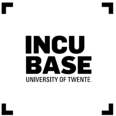As a graduate of the Master’s in Applied Physics with a specialisation in Materials Science, you will have excellent career prospects within R&D positions in all kinds of industries, but also within management or consultancy positions. Another option is to continue with a PhD- or EngD programme, as many graduates do. Or you could become an entrepreneur and start up your own business!
Type of degree
When you have completed this Master's with a specialisation in Materials Science, you will receive a Master’s degree in Applied Physics. Also, you can title yourself Master of Science (MSc) or use the title of Engineer/Ingenieur (Ir.) in Dutch. Your specialisation will be mentioned specifically on your diploma supplement, highlighting your specialised knowledge and skills in the field of materials science.
Job opportunities
As technology continues to advance, the demand for materials scientists and engineers with expertise in cutting-edge materials, nanotechnology, and other emerging fields will increase. Your in-depth understanding of material properties and behaviour, your knowledge of computational tools and modelling techniques and your proficiency in laboratory techniques will be highly valuable in many different settings and industries. This includes the electronics and semiconductor industry, the (renewable) energy sector, the biomedical industry, the automotive sector and the aerospace and defence industry, to name just a few.
Many graduates have secured jobs at renowned companies like ASML, Philips, Demcon and Thales, but also, for example, at the European Space Agency (ESA). Others went on to work for suppliers in this high-tech business, in companies like ZEISS, TRUMPF, Amphos, or Cosine, to name some examples, or promising start-ups like LioniX, Micronit, ECsens or NX filtration. Whether you want to work within R&D, grow into a higher management position, work within consultancy or you want to pursue a career as a researcher within a university or research centre: your job opportunities are widely varied.
Start a business
At UT, we highly encourage entrepreneurship. This University is the birthplace of a large number of high-tech spin-off companies that market developed technologies. You could use your research or even inventions stemming from your master’s thesis and/or your PhD research to start up your own innovative company as well! UT has been voted the most entrepreneurial university in the Netherlands four times in a row. We have a unique approach of putting scientific knowledge to practical use and turning our expertise and yours into solutions that people and society actually need. As a catalyst for meaningful entrepreneurship, we offer you the Novel-T foundation and their start-up hub Incubase on campus.
Former students have gone before you. For example, LioniX International was once started up by a graduate of Applied Physics at the University of Twente, just like Micronit. Will you be next?
Post-master opportunities
Instead of pursuing a professional career right away after obtaining your Master’s degree, you can also opt for a more academically oriented career, by pursuing a PhD or EngD. An EngD programme is more practically oriented, and aligned with the direct problem-solving or design needs of the industry, whereas a PhD programme is more focused on research. You can follow both types of programmes at the Twente Graduate School (TGS).
Continue as a researcher: obtain a PhD
A PhD (Doctor of Philosophy) involves spending four years of in-depth studying and researching in a particular area. You can do this within one of our research groups or in one of our structured PhD programmes. An integral part of a PhD is writing your PhD thesis at the end and then presenting and defending your research in public. Obtaining your PhD earns you the title of Doctor (Dr).
Follow an EngD programme
Other than obtaining a PhD, you can also opt to follow an EngD programme after graduation. Such a programme usually takes two years and is aimed at you becoming a high-level technological designer. Upon successful completion, you will receive a certified diploma and the academic degree title, Professional Doctorate in Engineering (EngD).

